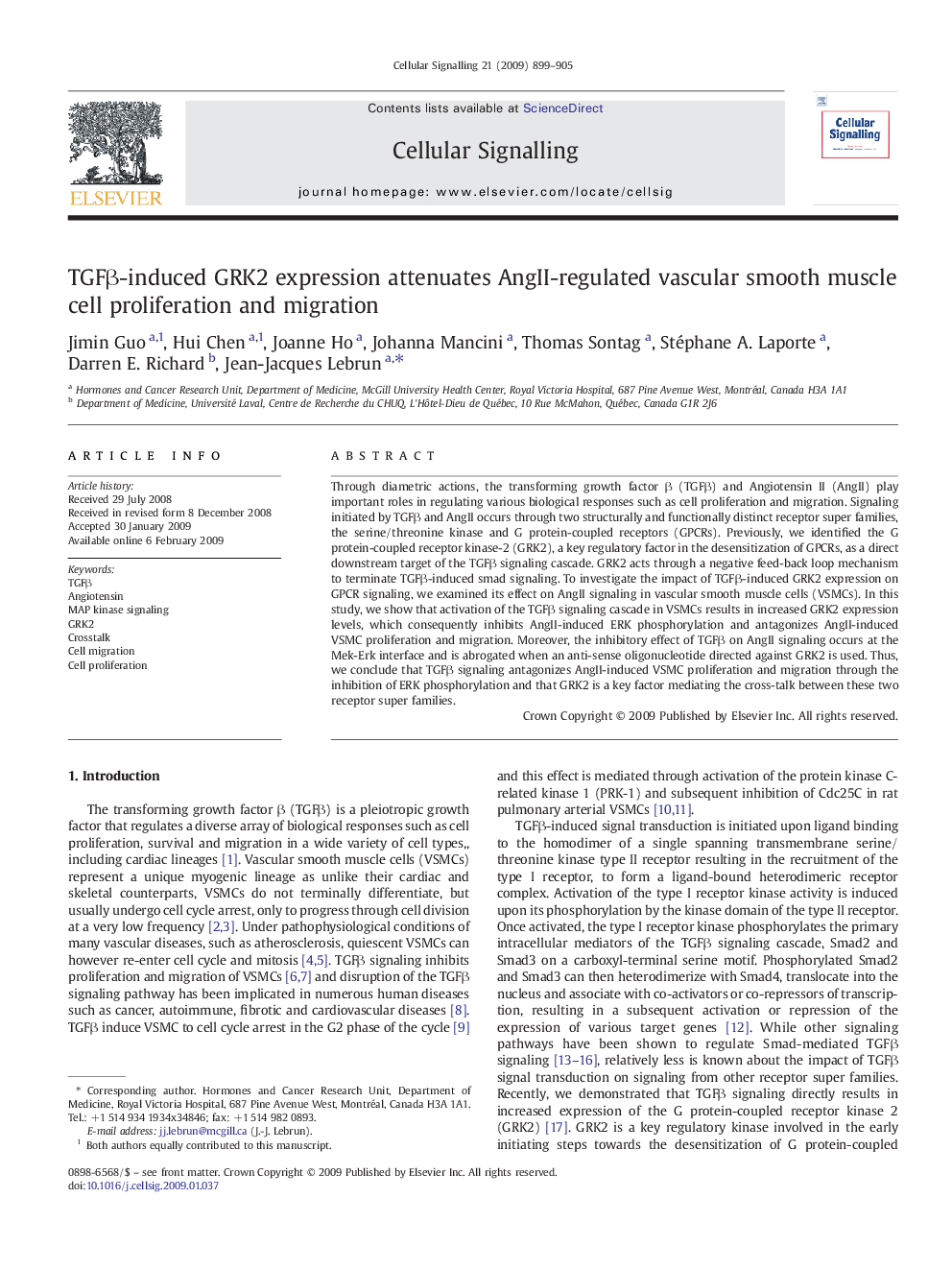| Article ID | Journal | Published Year | Pages | File Type |
|---|---|---|---|---|
| 1963991 | Cellular Signalling | 2009 | 7 Pages |
Through diametric actions, the transforming growth factor β (TGFβ) and Angiotensin II (AngII) play important roles in regulating various biological responses such as cell proliferation and migration. Signaling initiated by TGFβ and AngII occurs through two structurally and functionally distinct receptor super families, the serine/threonine kinase and G protein-coupled receptors (GPCRs). Previously, we identified the G protein-coupled receptor kinase-2 (GRK2), a key regulatory factor in the desensitization of GPCRs, as a direct downstream target of the TGFβ signaling cascade. GRK2 acts through a negative feed-back loop mechanism to terminate TGFβ-induced smad signaling. To investigate the impact of TGFβ-induced GRK2 expression on GPCR signaling, we examined its effect on AngII signaling in vascular smooth muscle cells (VSMCs). In this study, we show that activation of the TGFβ signaling cascade in VSMCs results in increased GRK2 expression levels, which consequently inhibits AngII-induced ERK phosphorylation and antagonizes AngII-induced VSMC proliferation and migration. Moreover, the inhibitory effect of TGFβ on AngII signaling occurs at the Mek-Erk interface and is abrogated when an anti-sense oligonucleotide directed against GRK2 is used. Thus, we conclude that TGFβ signaling antagonizes AngII-induced VSMC proliferation and migration through the inhibition of ERK phosphorylation and that GRK2 is a key factor mediating the cross-talk between these two receptor super families.
